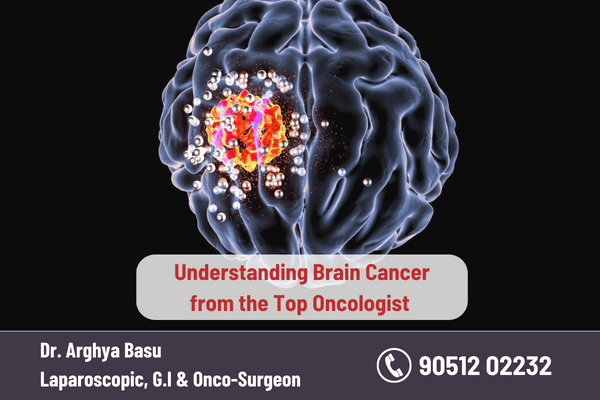Understanding Brain Cancer from the Top Oncologist

Brain cancer is a serious and potentially life-threatening disease that affects thousands of people each year. If you or a loved one has been diagnosed with brain cancer, it is important to understand the causes, types, and symptoms of the disease. In this article, we will provide you with a comprehensive guide to help you understand brain cancer. To get a proper cancer treatment consult the top oncologist.
What is Brain Cancer?
Brain cancer is a type of malignancy that starts in the cells of the brain. These cells can grow and divide uncontrollably, leading to the formation of a tumor. The brain can be cancerous and noncancerous.
Causes of Brain Cancer
1. Genetic Factors
Some people are born with a genetic predisposition to brain cancer. For example, people with certain genetic disorders, such as neurofibromatosis or Li-Fraumeni syndrome, are at an increased risk of developing brain cancer.
2. Environmental Factors
Environmental factors, such as exposure to radiation or certain chemicals, may also increase the risk of developing brain cancer. People who have received radiation therapy to the head or neck, for example, may be at an increased risk.
Types of Brain Cancer
• Primary Brain Tumors
Primary brain tumors are tumors that originate in the brain itself. There are several types of primary brain tumors, including gliomas, meningiomas, and pituitary adenomas.
• Secondary Brain Tumors
Secondary brain tumors, also known as metastatic brain tumors, are tumors that have spread to the brain from other parts of the body. Common types of cancer that can spread to the brain include lung cancer, breast cancer, and melanoma.
Symptoms of Brain Cancer
Common Symptoms
Usually, the symptoms of brain cancer differ based on the location and how big is the size of the tumour. Some of the most common symptoms include headaches, seizures, nausea and vomiting, and changes in vision or hearing.
Other symptoms to Watch Out For
Other symptoms that may indicate the presence of a brain tumor include difficulty speaking or understanding language, weakness or numbness in the limbs, and changes in mood or behavior.
Finding the Best Cancer Specialist or Top Oncologist
If you or a loved one has been diagnosed with brain cancer, it is important to find the best cancer specialist to provide treatment. Look for a specialist who has experience in treating brain cancer and who uses the latest technology and techniques to provide personalized care.
Conclusion
Brain cancer is a serious disease that requires prompt and effective treatment. By understanding the causes, types, and symptoms of the disease, you can take steps to protect yourself and your loved ones. If you suspect that you may have brain cancer, contact a healthcare provider right away to receive a proper diagnosis and treatment plan.
FAQ
1. How brain tumor happened?
Brain tumors can develop when cells in the brain grow and divide uncontrollably, forming a mass or lump. The exact cause of brain tumors is not always known, but risk factors such as genetic predisposition and exposure to radiation or certain chemicals may increase the likelihood of developing a brain tumor
Read More →